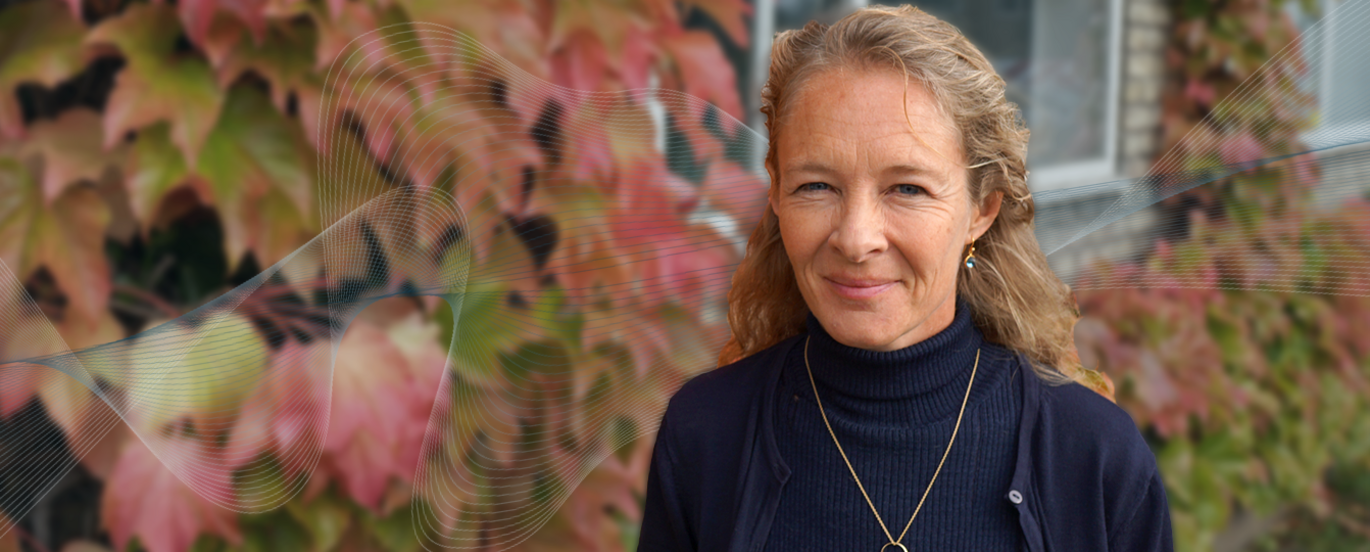"The pandemic has really shown that infectious diseases are a major challenge for society"
Over eighteen months the Covid-19 pandemic has made the importance of research into inflammation and infectious diseases crystal clear. The Inflammatory Network at Aarhus University is holding its first annual meeting on 11 November, and head of the network Trine Mogensen hopes to bring together a wide range of specialist areas – also in an attempt to strengthen Aarhus University’s position externally.

Further strengthening collaboration between a broad range of experts – and doing the same for Health’s position, thus making the faculty even more attractive for elite health science researchers.
These were some of the university’s ulterior motives when it established the Inflammation Network in the spring of 2020, a network which covers a wide range of researchers who work with inflammation, autoimmunity and infectious diseases.
The network will hold its first annual meeting on 11 November. It is here that Trine Mogensen, who is head of the network as well as professor of infectious immunology at AU and a medical specialist in infectious diseases at AUH, hopes that the seeds will be sown to strengthen collaboration across many specialist fields.
"I hope we can demonstrate that the network has a strong vision and strong people on board. We also want to promote our internal collaboration, and use this to give a targeted boost to new interdisciplinary and translational research projects, as well as establishing collaboration with innovation and industry and applying for major grants," says Trine Mogensen.
Needs an interdisciplinary effort
And the network does indeed appeal to a broad field of researchers. Together, they must attempt to find solutions to some of the biggest health challenges in the world.
Today, three out of five deaths are a result of chronic inflammatory conditions such as e.g. chronic infectious diseases, diabetes, connective tissue diseases and obesity.
This makes inflammation-related diseases the most common cause of death worldwide.
Therefore, what is needed is a coordinated and interdisciplinary effort if we are to deal with some of the health challenges that the world is facing.
This fact has been further emphasised by the past eighteen months with a global coronavirus pandemic, explains Trine Mogensen.
"Infection and inflammation have always been a major research area, and the Covid-19 pandemic has really made clear to everyone that infectious diseases are a major challenge for society, for the hospital system and in relation to research. But for better or worse, the pandemic has also shown that we’ve been able to quickly mobilise a strong collaboration between basic research and clinical practice," she says.
Cooperation during pandemic
The Covid-19 pandemic has also given rise to certain challenges for the Inflammation Network, which was established just after the pandemic began in Denmark.
The situation meant that the network's steering committee had to meet virtually, and the first annual meeting which was to be held in the spring of 2021, had to be postponed due to the pandemic.
However, the global health crisis has also encouraged researchers to collaborate across disciplines and to find answers to the acute challenges that the pandemic has given rise to.
"If we take a positive view of what the pandemic has done, then we can say it’s led to people becoming better at coming together, and everyone has wanted to help fight this new disease and new virus – because it’s been a major research and medical challenge, and also because there has been a lot of money to apply for both nationally and internationally," says Trine Mogensen.
"In this way, I think there has been a good collaboration, where there’s been a little less competition than normal and people have instead tried to work together," she adds.
Relevant for all health researchers
While the pandemic has underlined the importance of the work done in the Inflammation Network, Covid-19 is just one example of the many challenges that the network is trying to find solutions to.
Among the reasons for establishing the network was a wish to learn more about the correlation between inflammation and cancer development, about biomarkers and about the molecular mechanisms that underpin autoimmune diseases such as rheumatic disorders and diabetes.
Trine Mogensen therefore also thinks that the network's annual meeting will be interesting for almost all health science researchers.
"There is hardly a specialist medical area in which inflammation isn’t present as an important component of some of the major diseases, so we really want to reach out to the many researchers who carry out health science research," she says.
Mission statement of the network
The network presents Health's stronghold areas whitin infection and inflammation research with the purpose of recruiting PhD students, postdocs and elite researchers both nationally and internationally.
The network aims to build bridges between the basic research activities at the Department of Biomedicine and the clinically oriented studies at the Department of Clinical Medicine, with its close ties to the clinical units, patient material and bio banks at Aarhus University Hospital.
Contact
Professor, DMSc, Medical Specialist Trine Hyrup Mogensen
Aarhus University, Department of Biomedicine
Aarhus University Hospital, Department of Infectious Diseases
Mobile: (+45) 2012 5280
Email: trine.mogensen@biomed.au.dk
